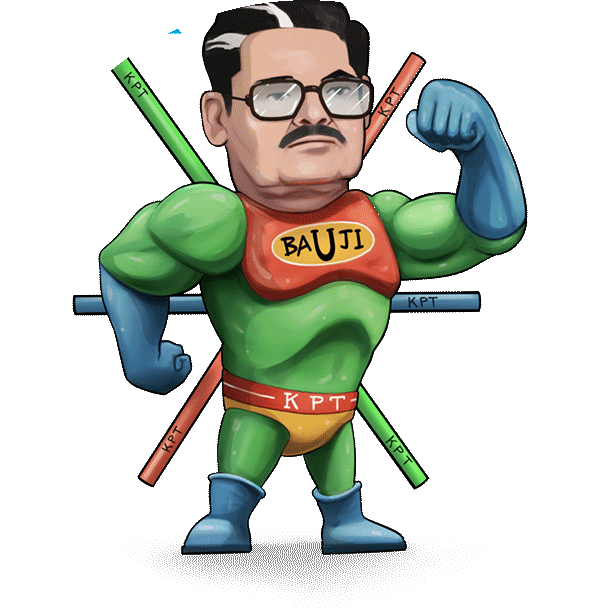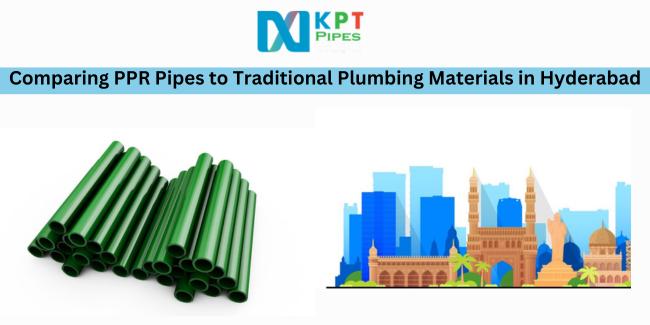When it comes to plumbing materials, there are numerous options available in the market. In Hyderabad, a city known for its rich history and rapid modernization, the choice of plumbing materials plays a crucial role in ensuring the longevity and efficiency of your plumbing system. In this blog post, we’ll compare KPT PPR (Polypropylene Random Copolymer) pipes to traditional plumbing materials to help you make an informed decision for your plumbing needs in the City of Pearls.
Table of Contents
The Basics of PPR Pipes
KPT pipes are a relatively new entrant to the plumbing industry, gaining popularity for their many advantages. They are made from a type of plastic known as polypropylene random copolymer, which is durable, corrosion-resistant, and safe for carrying potable water. These pipes are lightweight, easy to install, and have a long lifespan, making them a compelling option for plumbing projects in Hyderabad.
Traditional Plumbing Materials
Before the advent of KPT PPR pipes, traditional plumbing materials like PVC, copper, and galvanized iron were commonly used in Hyderabad. Each of these materials has its own set of advantages and drawbacks.
PVC Pipes:
PVC (Polyvinyl Chloride) pipes are widely used in the city for drainage and sewage systems due to their low cost and corrosion resistance.
However, they are not suitable for hot water applications and have a relatively shorter lifespan compared to PPR pipes.
Copper Pipes:
Copper pipes are known for their durability, resistance to corrosion, and ability to handle both hot and cold water.
They are, however, expensive and can be prone to theft due to the scrap value of copper.
Galvanized Iron (GI) Pipes:
GI pipes were commonly used for water supply lines in older Hyderabad buildings.
They are durable but can rust over time, leading to reduced water quality and flow.
Comparing KPT PPR Pipes to Traditional Materials
Cost-effectiveness:
PPR pipes are competitively priced, making them an attractive option for both residential and commercial plumbing projects.
While traditional materials like copper and GI pipes are durable, their higher initial cost can be a limiting factor for many.
Installation:
KPT PPR pipes are lightweight and can be easily installed, reducing labor costs and project duration.
Traditional materials like copper may require specialized skills and tools for installation, which can add to the overall project cost.
Corrosion Resistance:
KPT PPR pipes are naturally corrosion-resistant, ensuring the long-term integrity of your plumbing system.
Copper pipes also have good corrosion resistance, but GI pipes are prone to rusting over time.
Heat Resistance:
KPT PPR pipes can handle hot water without degradation, making them ideal for Hyderabad’s diverse climate.
PVC pipes are not suitable for hot water, limiting their use in certain applications.
Water Quality:
KPT PPR pipes do not affect the quality of water and are safe for potable water supply.
GI pipes, when corroded, can negatively impact water quality, leading to health concerns.
Conclusion
In the rapidly evolving city of Hyderabad, the choice of plumbing materials is pivotal in ensuring the long-term functionality and safety of your plumbing system. PPR pipes have gained prominence as a cost-effective, corrosion-resistant, and easily installable option. While traditional materials like copper, PVC, and GI pipes have their merits, PPR Pipes and fittings in Hyderabad offer a compelling solution for modern plumbing needs, making them a popular choice for both residential and commercial projects. When considering your next plumbing project, give PPR pipes serious consideration to enjoy the benefits they offer, as they are well-suited to the unique demands of Hyderabad’s climate and infrastructure.


